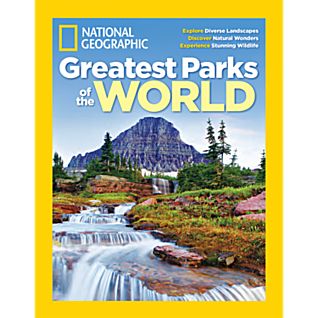
, TANZANIA
STORY TOURISM
IS TANZANIA'S LEADING ECONOMIC SECTOR. Details Events National
Parks Travel
Services
Kilimanjaro:
Keeping the Mountain Clean The government has
undertaken some major reforms aimed at promoting local
communities' participation and involvement in ecotourism-
related business undertakings and activities. This has
helped to forge links with local communities in developing
more informed choices like cultural tourism and community
private sector partnerships." TANAPA, however, recognized
that the best environmental strategy cannot be implemented
without education, and launched a campaign to "build a
culture of keeping the Mountain Clean." The objective of
educate both the visitors to the park and others including
park wardens, tour operators, guides, porters, researchers
as well as the local communities that they are all, in fact
stakeholders in protecting Mount Kilimanjaro National Park.
Workshops were organized to sensitize the porters and guides
who are on the front line of responsibility for implementing
TANAPA's trash and sanitation policies. TANAPA also initiated
community-based educational programs through its Community
Conservation Service Dept. (CCS). At least each village
adjacent to the National Park is provided with the
environmental conservation education. This education is
introduced by the organization to the villages through a
park warden working with community conservation services
(CCS) department at the sub department called extension
service. This warden is responsible for supervision of
conservation education, awareness raising mobilize
responsible for supervising conservation education and to
mobilize youth groups, women's groups and other institutions
to focus on community-initiated environmental activities. At
least one teacher in every school is trained in
environmental education. Together with the education , the
CCS also assists the local villages with the construction of
public schools, dispensaries, poverty alleviation projects,
tree nurseries and tree planting activities through a
program called "Support for Community Initiated Projects"
(SCIP). TANAPA funds this program with income generated
through tourism. According to Arusha-based
Ezekiel Dembe, TANAPA Planning Manager and Esther Joseph, of
TANAPA's CCS Department, the results from the CCS and SCIP
programs have been positive, with TANAPA gaining support
from the local people in protecting the Mt. Kilimanjaro
National Park from fires and in reporting illegal poaching
activity. Although the problems of
sanitation and erosion on the mountain are complex issues
that will take time to rectify, tour operators report good
progress. According to Thomas Holden, Director of
Kilimanjaro Programs for Boston-based, Tanzania-only,
Thomson Safaris, "both Eric Christin, Thomson's Operations
Manager in Arusha, and I heartily agree that there has been
a massive turnaround in the trash situation on the mountain
from just a few years ago. It is only three years ago when
KINAPA outlawed the collection and burning of firewood on
the Mountain. I remember on my first climb in March 1999,
seeing the remnants of campfires and charred logs in the
lower camps. KINAPA has now been very strict on this issue
and if aesthetics are any indication of ecological health,
this mountain is a greener place." Holden feels that the
implementation of the sanitation measures is ultimately
dependent on the collective commitment of the tour
operators. "Although it is impossible to pretend that
everyone has similar ethics, things are promising.
Kilimanjaro is a gem to TANAPA, with each trekker staying an
average of six or more days and paying park fees for six or
more days. There aren't many national parks anywhere else in
Africa where people stay this long. TANAPA knows this and so
the tour operators will be held to a higher standard. And
most tour operators bringing trekkers to Mt. Kilimanjaro
recognize that with the limited places to venture and the
increased number of visitors, it is also to their benefit,
not to trash their own house." It is, however, an
environmentally sensitive tourist who will also share in the
responsibility of protecting the environment. Aware of this,
TANAPA is expanding its Mt. Kilimanjaro Visitors
Interpretive Center to educate climbers on appropriate trail
use; what they can do to help protect the park's natural
resources; educate them about the importance of the flora
and fauna, natural processes, ecological relationships; as
well as provide them with health and safety
information. For information on
Tanzania, contact the Bradford Group, Tel: (212) 447-0027 or
email: Tanzania@bradfordmarketing.org

Contact Information
Tanzania Tourist Board
IPS Building, P.O. Box 2485
Dar-es-Salaam
Tanzania.
safari@ud.co.tz
(255) 022 2111244
(255) 022 2116420
Photos
1-10
ZANZIBAR
STORY
Chumbe
Island
Perfectly
Pemba
Zanzibar
Tour
Operators
236
Hurumzi Street
Stone
Town
Tanzania
Topics
About
Tanzania
Air
Safari
National
Parks
Arusha
Bagamoyo
Caves
Dar
es Salaam
Eco
Action Plan
Explorer's
Club
Fashion
Shows
Imax
Part
1
Imax
Part2
Kilimanjaro
Marathon
Marketing
Tanzania
Moshii
Minister
Profile
News
Briefs
Sports
Tourism
Swahili
Festivals
Tanzania
Tour
Operators
Walking
Safaris
Wildlife
Women
in Tourism
Zanzibar
ATA
33rd Congress
Leon
Sullivan
Summit
Ngorongoro
Crater
Karibu
Fair
World
Urban Forum
TTB
visits USA
President
at NYC Event
Tanzania
Investment
Forum
TedGlobal
Minister's
USA Tour
Arusha
NP
Ruaha
NP
Selous
NP
Tanapa
Website
Auto
Rentals
Kilimanjaro
Airport
Kilimanjaro
Hotel
Qatar
Airways
Tanzania
Tourist Board
Zamani
Zanzibar Kempinski
Hotel.
Tanzania
Tour
Operators
Zanzibar
Tour Operators


Not to be outdone, Kilimanjaro National Park was also
featured in the article.“It’s not only the highest point on
the continent and the world’s tallest freestanding mountain
but also one of the only tall mountains you can climb
without any special gear.” Interested travelers will have to
travel roughly 200 miles east of the Serengeti to reach the
dormant volcano of Mt. Kilimanjaro.
By Karen B.
Hoffman Even
before Ernest Hemingway published the now famous literary
classic, "The Snows of Kilimanjaro," the romantic image and
mystique of Mt. Kilimanjaro has long held a special
attraction for adventure travelers, climbers and
non-climbers alike. Located in Tanzania, just northeast of
Arusha, the world famous Mountain, at 19,340 feet, is the
highest on the African Continent. Mt. Kilimanjaro National
Park, a World Natural Heritage Site, encompasses three peaks
(Shira, Kibo and Mawezi), natural wilderness trails,
cultural sites and Montane Forest. One of 12 parks in the
Tanzania National Parks (TANAPA) system, Mt. Kilimanjaro
attracted 26,282 visitors in 2000/01, an increase of almost
5000 over the previous year. If one considers that three
porters and a guide accompany each tourist, one can well
understand the negative impact this traffic has been having
on the ecosystem of the mountain.
Even
before Ernest Hemingway published the now famous literary
classic, "The Snows of Kilimanjaro," the romantic image and
mystique of Mt. Kilimanjaro has long held a special
attraction for adventure travelers, climbers and
non-climbers alike. Located in Tanzania, just northeast of
Arusha, the world famous Mountain, at 19,340 feet, is the
highest on the African Continent. Mt. Kilimanjaro National
Park, a World Natural Heritage Site, encompasses three peaks
(Shira, Kibo and Mawezi), natural wilderness trails,
cultural sites and Montane Forest. One of 12 parks in the
Tanzania National Parks (TANAPA) system, Mt. Kilimanjaro
attracted 26,282 visitors in 2000/01, an increase of almost
5000 over the previous year. If one considers that three
porters and a guide accompany each tourist, one can well
understand the negative impact this traffic has been having
on the ecosystem of the mountain.
![]() "We
view environmental issues as critical to the continued
growth of Tanzania Tourism, and are fully committed to
supporting TANAPA in its efforts to implement the new
strategies for 'building a culture of keeping the Mountain
clean, '" said Hon. Zakia Hamdani Meghji, Minister of
Natural Resources and Tourism of the United Republic of
Tanzania.
"We
view environmental issues as critical to the continued
growth of Tanzania Tourism, and are fully committed to
supporting TANAPA in its efforts to implement the new
strategies for 'building a culture of keeping the Mountain
clean, '" said Hon. Zakia Hamdani Meghji, Minister of
Natural Resources and Tourism of the United Republic of
Tanzania.  TANAPA
has recently implemented new strategies to improve the waste
management and soil erosion in particular, and the overall
environment of the world-renowned Kilimanjaro National Park.
Strict monitoring of such policies as "Trash- in Trash- out"
and the ban on collection and burning of firewood on the
Mountain have improved sanitation on the mountain; while
implementing trail transfers when existing trails show signs
of erosion as well as training permanent crews on trail
maintenance and water controls have helped overcome
man-caused soil erosion.
TANAPA
has recently implemented new strategies to improve the waste
management and soil erosion in particular, and the overall
environment of the world-renowned Kilimanjaro National Park.
Strict monitoring of such policies as "Trash- in Trash- out"
and the ban on collection and burning of firewood on the
Mountain have improved sanitation on the mountain; while
implementing trail transfers when existing trails show signs
of erosion as well as training permanent crews on trail
maintenance and water controls have helped overcome
man-caused soil erosion. 
.